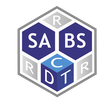Funding

As a SABS student, you will be enrolled at the University of Oxford. The majority of SABS students are fully funded by the programme, with funding from the University of Oxford, and our industrial partners and charitable trusts. Restrictions on eligibility set by individual funding bodies apply.
Note: for entry in 2024, non-UK candidates will not be eligible for funding held by the SABS Programme.
Funding covers full fees and a stipend for living expenses, and candidates will be considered automatically based on their application to the programme. In previous years, a small number of SABS students have also been funded through national and international scholarships that they have applied for themselves, often with the support of the SABS Programme.
You are encouraged to explore alternative funding options as well, please see www.graduate.ox.ac.uk/fundingsearch for details.
We also give you the opportunity to share socioeconomic data in your application:
Shortlisting Black-British Students for Interview
If you are a Black-British student interested in undertaking research within the remit of SABS and meet at least one of the following criteria:
- consistently high performance or a strong upward trajectory leading to a predicted or obtained high 2.1 or 1st class degree in a relevant STEM subject;
- high performance consistent with a distinction in a masters' degree; or
- substantive relevant work experience consistent with the academic criteria listed above;
we will use information on ethnicity to ensure that you are invited to interview:
The reason for taking this action is to help address the under-representation of Black-British students in doctoral research by ensuring that eligible candidates are given the opportunity to demonstrate their potential for doctoral study at interview.
Use of Socio-Economic Data

SABS, like the other DTC Programmes, will take into consideration socio-economic data in the assessment of applications. The University currently collects a range of socio-economic data from candidates who apply for graduate study. This information is used to understand the demographics of those applying and of candidates who are offered places, but it is not normally available to assessors.
We will use these data to contextualise our shortlisting and decision-making processes. Academic assessors will be enabled to do this by the use of a flagging system similar to that used for United Kingdom applicants for undergraduate admissions.
By better understanding your socio-economic background, we can better understand the challenges that you have had in your education to date.
To allow us to use this information, you should fill in the questionnaire on your socio-economic background as part of your application.
Use of a Contextual Statement
We recognise that socio-economic data may not fully capture an individual student’s personal circumstances, so if any of the criteria listed below apply in your case, we encourage you to submit a statement providing additional detail on your personal circumstances using the contextual statement form.
Your contextual statement will not be made available to assessors during the initial phase of academic shortlisting, but may be used in association with socio-economic data to contextualise the short-listing and decision-making processes.
You may wish to provide a contextual statement, particularly if you:
- are in the first generation of your family to go to university;
- have been in care for at least three months;
- have been a young carer;
- are from a low-income background;
- you have received a means-tested scholarship;
- you have needed to work to support yourself during your academic studies because of your socioeconomic circumstances;
- are a refugee;
- are neurodivergent;
- have or have had one or more disabilities or chronic illnesses that have affected you in education or at work; and/or
- wish to disclose other circumstances that have substantially affected you in education or at work.
Please note, this statement is in addition to completing the 'Extenuating circumstances’ section of the standard application form.



